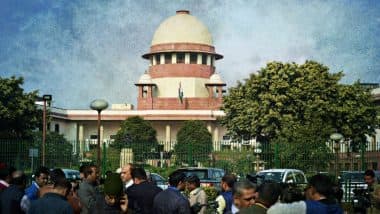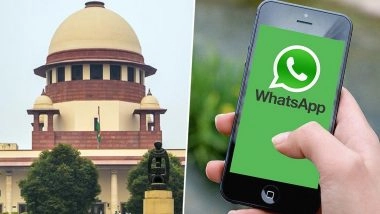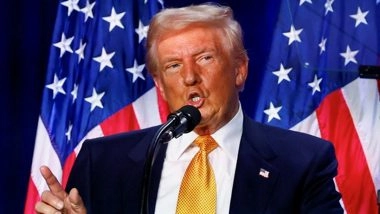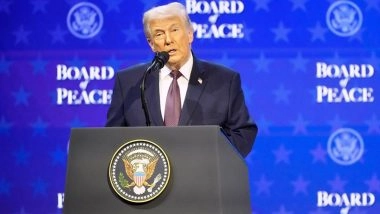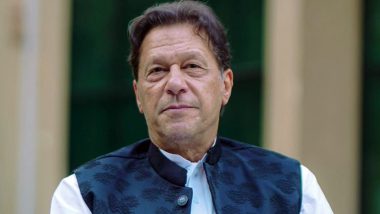The pronouncement in the Ayodhya Land dispute case concluded. A Three judge Bench of Supreme Court will decide the title dispute. No reference to larger Bench, Supreme Court holds by 2:1 majority. The majority judgement on Thursday said that the 1994 observations by the Apex Court were only related to that specific issue of acquisition, and not to the larger question of whether a mosque is essential to Islam.
Justice SA Nazeer pens dissenting opinion as far as the relevance of observations in Faruqui's case is concerned and prefers to a larger bench to review the case. Nazeer said questionable observations in Ismail Faruqui have permeated the Allahabad High Court verdict. He further added saying that Ismail Faruqui needs to be brought in line with Shirur matter case.
Supreme Court to begin hearing on Ayodhya matter from October 29, 2018 to decide the suit on merit. Justice Abdul Nazeer dissents. Holds what is essential to religion as laid down in Ismail Faruqui was arrived at without comprehensive examination, needs to be re-examined in detail.
Justice Bhushan on behalf of him and CJI Dipak Misra in Supreme Court said that Ayodhya land dispute case will not be referred to a larger bench. Justice Ashok Bhushan said that all religions and religious places need to be equally respected. Ashoka's edicts preach tolerance to the faith of others.
Chief Justice Ashok Bhushan said the judgment in Ismail Faruqui will not impact decisions in suits; the observations in that judgment only wrt immunity from acquistion and won't affect suits.
Justice Ashok Bhushan said Ismail Faruqui held that all temples, mosques churches etc. are liable to be acquired under eminent domain of the State and said the use of "particular significance" in Ismail Faruqui judgment is only in the context of immunity from an acquisition.
Majority verdict refuses to refer Babri to a larger bench. The observation in para 52 of Ismail Faruqui has to be understood in the context of immunity from the acquisition, Ashok Bhushan J said. The Supreme Court said all temples, mosques, churches equally relevant.
Justice Ashok Bhushan has written for himself and for CJI Dipak Misra. The case will be heard by a three judge bench, comprising CJI Dipak Misra, Justice Ashok Bhushan and Justice SA Nazeer. Observations in Ismail Faruqui on mosques as not essential to religion is in the context of the acquisition of mosque and made with respect to the facts of that case, says Justice Ashok Bhushan.
The Supreme Court Bench assembles, pronouncement commences. Justice Ashok Bhushan pronounces the verdict on behalf of CJI Dipak Misra and himself.
A bench of Chief Justice Dipak Misra and Justices Ashok Bhushan and S Abdul Nazeer will pronounce the verdict, which was reserved on July 20. Two separate judgements will be pronounced in the Ayodhya case- One, a combined one of Dipak Misra and Justice Ashok Bhushan while Justice SA Nazeer has penned his separate opinion.
New Delhi, September 27: The Supreme Court will shortly pronounce its verdict on a plea by a larger bench on whether mosques are integral to Islam. The batch of pleas is by Muslim groups on the Ram Janmabhoomi-Babri Masjid title dispute seeking reconsideration by a larger bench, the observations made by it in a 1994 verdict that a mosque was not integral to Islam. A bench of Chief Justice Dipak Misra and Justices Ashok Bhushan and S Abdul Nazeer will pronounce the verdict, which had reserved it on July 20.
Earlier, several Hindu groups had opposed the plea of their Muslim counterparts that the 1994 verdict holding that a mosque was not integral to the prayers offered by the followers of Islam be referred to a larger bench. Meanwhile, the Uttar Pradesh government had told the Supreme court that few Muslim groups were trying to delay the hearing in the Ayodhya temple-mosque land case by seeking reconsideration of the observation in the 1994 verdict that a mosque was not integral to Islam. Ayodhya Verdict today: Is Mosque Essential to Practice Islam? Supreme Court to Decide.
According to a report by PTI, M Siddiq, one of the original litigants of the Ayodhya case who died and is being represented through his legal heir, had assailed certain findings of the 1994 verdict in the case of M Ismail Faruqui holding that a mosque was not integral to the prayers offered by the followers of Islam. Reports inform that it was argued by the Muslim groups before a special bench of Chief Justice Dipak Misra and Justices Ashok Bhushan and S A Nazeer that the “sweeping” observation of the apex court in the verdict needed to be reconsidered by a five-judge bench as “it had and will have a bearing” on the Babri Masjid-Ram Temple land dispute case.
The observations were made in the land acquisition matter pertaining to the Ayodhya site and the apex court had to consider two aspects as to whether a mosque could be acquired at all and whether a religious place of worship like a mosque, church or temple was immune from acquisition if it was a place of special significance for that religion and formed its essential and integral part.
The special bench of the apex court is seized of a total of 14 appeals filed against the high court judgement delivered in four civil suits. A three-judge bench of the Allahabad High Court, in a 2:1 majority ruling, had in 2010 ordered that the land be partitioned equally among three parties — the Sunni Waqf Board, the Nirmohi Akhara and Ram Lalla.







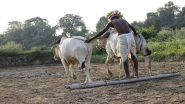


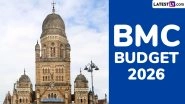
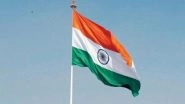

 Quickly
Quickly